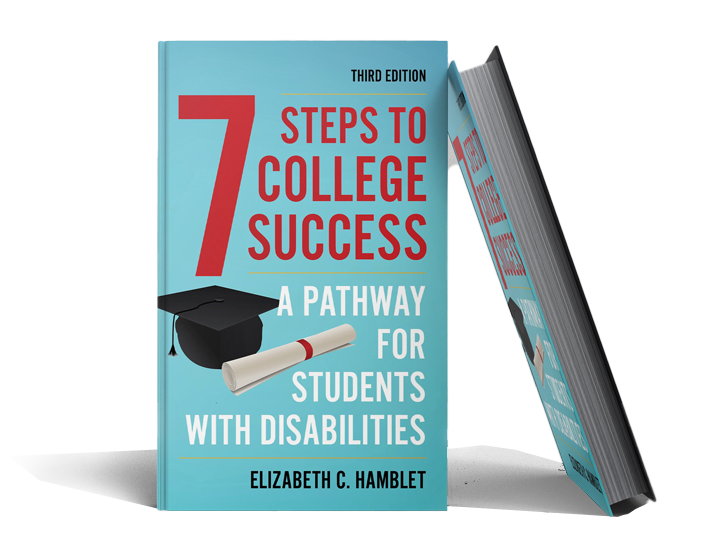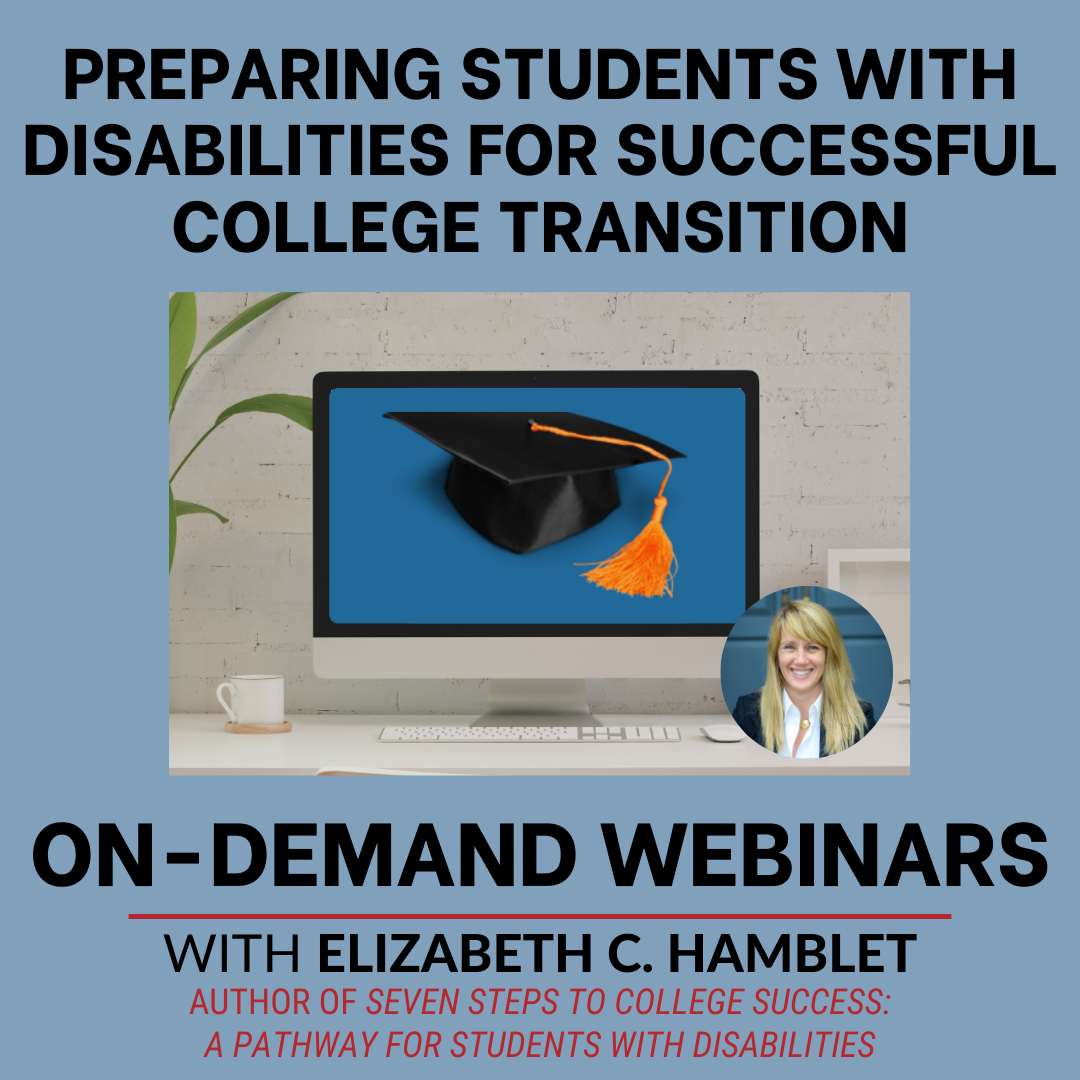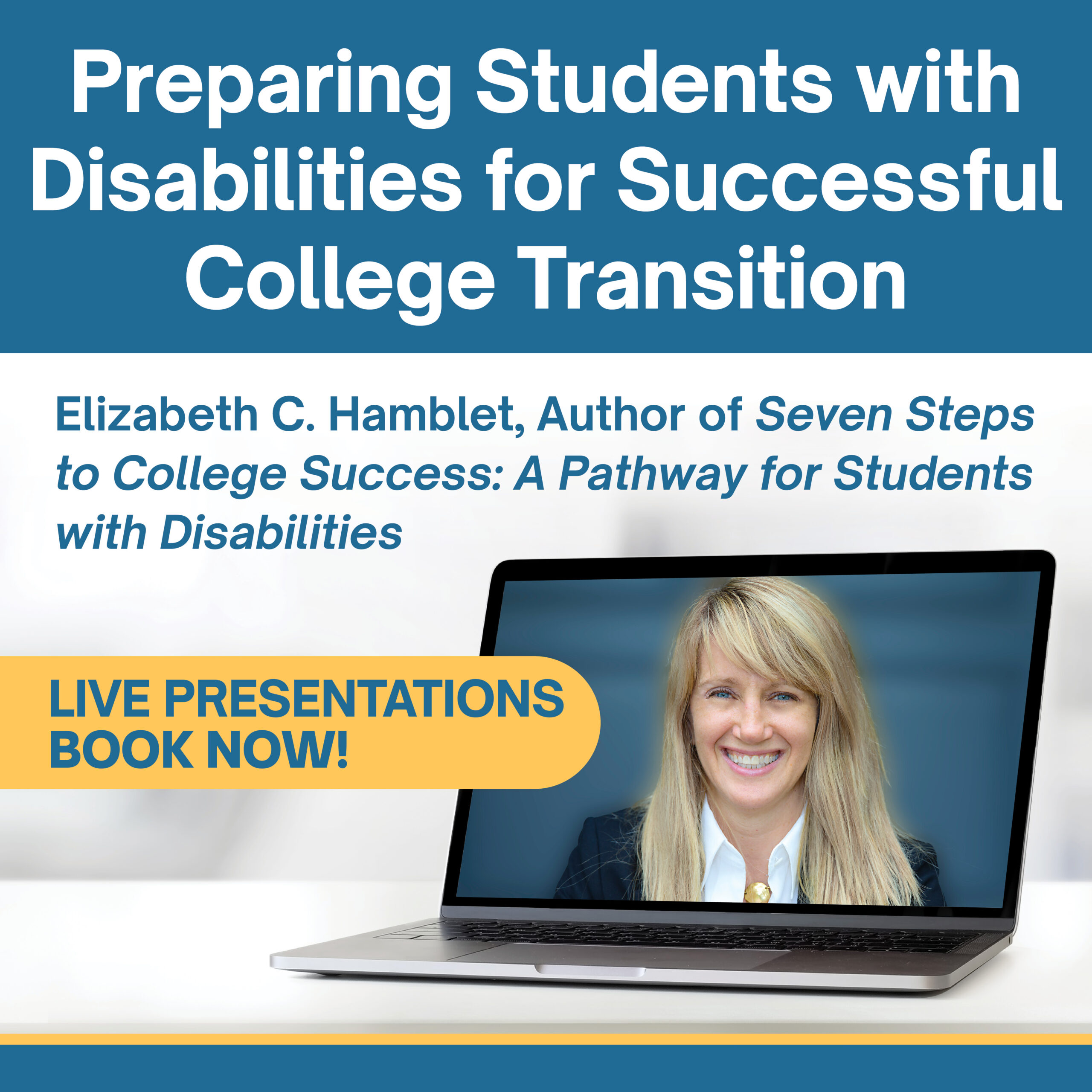Introduction
Students with disabilities transitioning to college will find the disability accommodation system different from what they’re used to, and some will find that supports they have received in the past are not available.
Some schools offer – for a fee – special programs for students with learning disabilities and ADHD that provide supports that aren’t considered available as disability accommodations. (This because colleges don’t have to provide them). Students interested in these programs should do their research – each one might have very different offerings from the others. (See a list of these programs and some basic points about them in the K&W Guide to Colleges For Students with Learning Differences.)
Leann DiAndreth-Elkins is Executive Director of Disability Resources Services at Muskingum University, which offers the PLUS Program
Gabrielle Miller is Assistant Vice Provost and Executive Director of the University of Arizona’s Strategic Alternative Learning Techniques (SALT) Center
At the time of his interview, Scott van Loo was Director of the University of Denver’s Learning Effectiveness program (LEP)
Q. What special services do students receive for this fee that beyond those offered to anyone registered with the university’s disability services office?
Elkins: Students have set scheduled appointments (called tutoring) with one of our learning consultants (they all hold a bachelor’s or master’s degree). Some of these consultants have certain academic backgrounds, so while we try to schedule students with the same one, we might give them appointments with different ones because one is strong in math and another is strong in writing. But we also hire generalists that have a background in special education, or executive functioning, or who are retired teachers.
Every student also gets a primary learning consultant who serves as their “case manager,” if you will . Students always have a faculty member who serves as their academic advisor, but their primary learning consultant oversees their entire academic experience at Muskingum. They’re the one who will contact faculty members and family members as needed, so there’s one person providing continuous support.
Miller: SALT Center looks more comprehensively at ways to support student success. Students have a relationship with a support specialist the entire time they’re here. In addition to helping students be academically successful, specialists help students with other issues that may impact their success (e.g., homesickness, roommate, navigating the university, etc.) We also offer multiple types tutoring (1-1, small group) and a program we call Academic Intervention for students who are really struggling or on academic probation. We also have a wide range of technological supports (assistive tech and software) available for SALT Center students. And, as I previously mentioned, wellness and counseling services are available to all our students.
vanLoo: Once a week, our students get a one-on-one, hour-long meeting with what we call an academic counselor. We call them that on purpose because they have a wide range of different skill sets that they can help students navigate – we consistently train our staff, so they can help students with anything from executive functioning skills to mindfulness techniques and strategies for anxiety reduction The session covers whatever students want to work on.
We have a number of organization and time-management tools our Academic Counselors teach students to use. We have something we call a 10-week calendar where we help students take their syllabi from each of their classes. We help them pull out all the important information and put it all in one calendar. Then we work with them on figuring out when they need to study, where they’ll do they’re studying – how is that going to look for them? We help them look at important upcoming projects.
We also have our own tutoring program that is available just to our LEP students. Any student on campus can go to one of the general sources for tutoring on campus, like the Writing Center. But if you need help with Writing 101, we can get a tutor to work with you (and maybe some other LEP students) on the specific curriculum for that class. They are usually graduate students or professionals. While this may change in the future, students can currently have as many tutors as they want.
Q. Can students pay for more services?
Miller: Generally not. There are certain situations where we might consider a specific request, but all our other services are pretty much unlimited, so we don’t find there’s a need for that.
vanLoo: Not currently, but we are exploring different options with our university and our divisional leadership.
Q. Do the people you hire as academic counselors have a background in special education or a similar field?
Elkins: Our learning consultants have bachelor’s or master’s degrees, either in the content area in which they’re tutoring students or in a general area (these consultants have a background in special education, or in elementary education but they have experience with study strategies, executive functioning strategies, etc.). We look for a variety of individual, and everyone gets trained in how to work effectively with students with learning differences. Not only do our tutors help with content, but they also infuse strategies that students need to be successful.
Miller: All have some kinds of relationship with disability. They might know of individuals and/or have worked with someone who has a disability. One of our staff members is a SALT alum. Some specialists are social workers, school counselors, MBAs. Because the relationship between the student and specialist is so critical to a student’s success, we try to match students to a specialist who can connect with them on a number of different levels—not just knowledge of disability.
On the learning support side, most tutoring is by student employees. They all have to go through a credentialing process through the College Reading and Learning Association (CRLA).
vanLoo: Most of our staff either come from the professional counseling world or the professional teaching world. Some have a heavy campus advising or campus support background. 96% of our LEP staff have a graduate degree.
Our tutors are professionals or graduate students, and if we hire undergraduates, they have to have at least an A and a recommendation from the professor in order to work for the program. We provide them with training through the College Reading and Learning Association (CRLA) and our internal LEP training prior to their first tutoring appointment.
Q. Do you communicate with parents?
Miller: We do when we have permission from students to do so. Per federal educational privacy law (FERPA) we need student permission to contact families. And, when we do, we always like to have a conversation with both students and families so there is no confusion.
We do not have access to grades. If parents/guardians ask about those – even when we have permission to speak with them – we tell them to ask their student to share them.
If a student is fine with the family knowing what’s going on, we find the best way to facilitate communication is to invite the parent/guardian to join the student’s weekly meeting with their specialist so everyone is hearing the same thing and everyone’s questions can be answered.
The communication plan is a big expectation in the LEP. We really don’t triangulate by having separate conversations with parents. We encourage and support conversations initiated by our students and involving the LEP and families. Sometimes, well-meaning parents call us directly and ask, “How’s it going with my student?” We are bound legally, and through DU policy to have that conversation with the student present.
If students sign the FERPA form, then that’s just a legal acknowledgement of that partnership, but it doesn’t it doesn’t exclude the student from any kind of communication.
Also, we don’t conduct progress reports back to parents. Students have access to their own grades. So, if parents want to know how their student is doing, they’ll have to ask them. We don’t and can’t tell them.
It’s so important that parents create a trusting environment to establish communication with their student.
Q. Do you ever get requests from students or their family members that you don’t agree to provide?
Elkins: We don’t provide modifications. Parents and students need to understand that the ADA requires colleges to provide equal access through accommodations, such as notes from a lecture, extended time for test, etc.
Some students are receiving modifications in high school; they don’t happen at the college level. All students in a course are expected to meet the same expectations, even those who utilize our program.
We’ll help students learn the material and prepare for tests, but we don’t provide requests like fewer choices on a multiple choice exam, or permission to use notes on a test.
Another request we get periodically is to prompt students to be where they need to be each day and/or hold them accountable for completing assignments each week. We will not wake students up to get to class on time, we cannot hold them accountable for their assignments. There are times when families are confused that we don’t intercede or advocate on behalf of students with professors, Housing, some other office/department. We can’t do that, but we’ll talk to the student about their goal for that meeting and help them prepare.
It’s also important to note that we cannot register students with DRC. And we cannot provide medication management, though we can refer a student to medical services both on campus and in the community.
The things we don’t do for students coalesce around a central idea – that the student is an adult and that they are able to handle their own basic needs in these areas. We will prompt/encourage students to follow up with professors or others on campus with whom they need to interact. We will also help them prepare for the meetings (role playing, etc..). We cannot do more than that.
Some parents want their student to have additional check-ins. We don’t do that, either. We expect students to be able to take the tools we give them in their weekly meeting and implement them until their next meeting.
Students need to be able to access the proper departments and programs as part of their journey through DU. The LEP is here to assist students in navigating the systems and campus, however it is ultimately up to the student to follow through, attend appointments and complete work.




